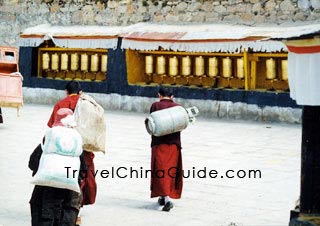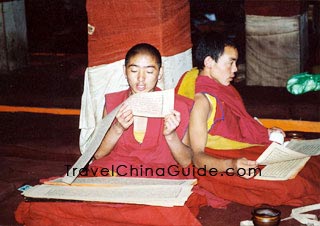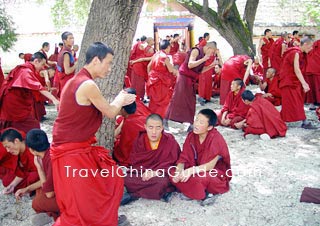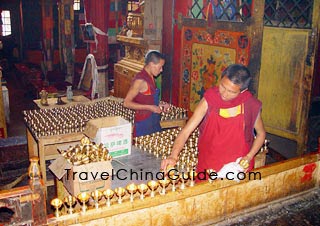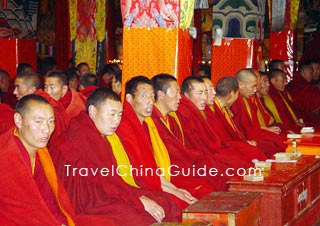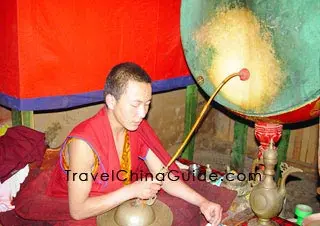Monastery Life
There used to be thousands of monasteries in Tibet. Every family was expected to send at least one boy to a monastery. Usually, boys would be ordained at the age of seven; girls, a bit older. The monastery life used to be the only access to education and improved social status. People went to monasteries to get educated, to merit their family and to pursue religious fulfillment. Although educational and economic conditions in Tibet have improved, many Tibetans are still drawn to the monasteries.
|
|
|
|
|
|
- Last updated on Apr. 08, 2021 -
Questions & Answers on Monastery Life
Asked by Ms.Grazyna Judek from IRELAND | May. 01, 2011 19:51 Reply
Reply
Tibetan Monastery practice
Is it possible to come to Tibet and stay in the monastery for a while to study and practice.
If yes, could you please outline for how long I could stay and how much would it cost?
Your help would be greatly appreciated.
Regards
Grazyna Judek
If yes, could you please outline for how long I could stay and how much would it cost?
Your help would be greatly appreciated.
Regards
Grazyna Judek
Answers (2)
Answered by Ms.Sally | May. 03, 2011 02:38 2
2 0
0 Reply
Reply
If you want to visit the region, you need to join a tour and get a Travel Permit. I am also a little confused about the time limit. You'd better consult about it from your travel agent if you decide to go there.
Answered by vicky from INDIA | Apr. 29, 2013 12:23 3
3 0
0 Reply
Reply
hello friend , i think it depends on that how long chines government allows you and will monastery accept you to stay or if yes then for how long, its not in the hand of tour and travels. bcz all monastery have their own rule and regulations which to follow, you can write letter to any monastery where you want to stay,or you can come freely and then search by yourself
